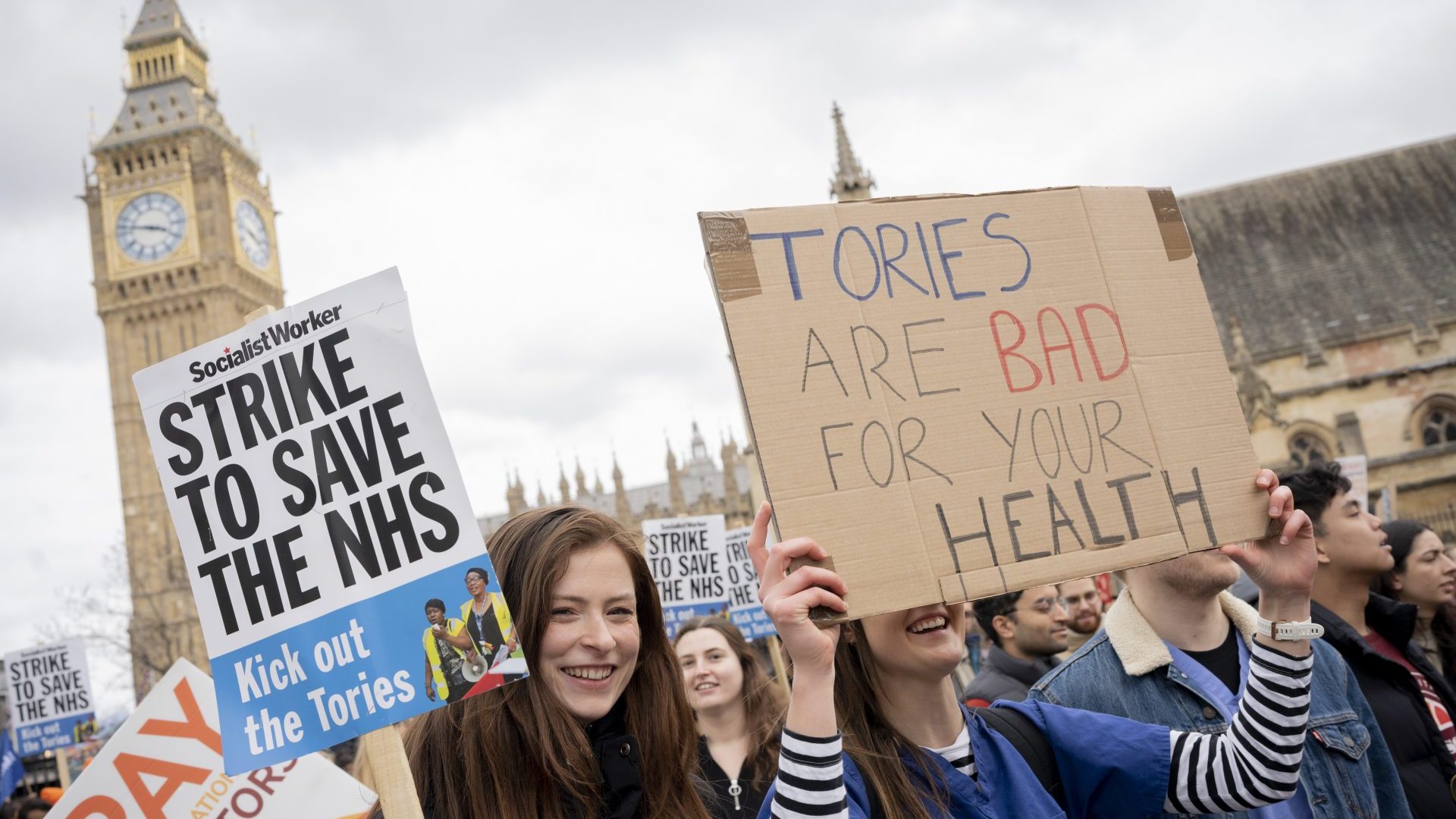The NHS is in crisis. Three big health thinktanks say so; so does the Institute for Government (IFG). And so do all political parties except the Tories, whose MPs merely say so quietly, at their summer parties. The only question is whether this crisis is fixable within the current institutions and funding mechanisms, or an existential one that’s going to lead to a collapse in belief in free healthcare. Because if you want the former, not the latter, it’s going to cost.
Evidence of the crisis abounds. The number of people waiting for treatment stands at 7.4 million, up from 7.2 million a month ago, with 371,000 people waiting more than a year for routine hospital treatment. The NHS is short of 154,000 doctors, nurses, midwives and technical staff, and unless the new Workforce Plan succeeds, that number will more than double in a decade.
And though the UK normally spends 9.9% of its GDP on healthcare – just below the developed-world average – it is one of the lowest performers in terms of outcomes. Britain, for example, has just 16 CT or MRI scanners per million inhabitants; Germany has 70; Australia 85; Japan a startling 167.
We employ fewer doctors and nurses per head than our peers. Only the USA, among developed countries, has a higher rate of avoidable death than ours.
As a result, satisfaction with the NHS is at an all-time low: all age groups, all demographics report the same problem – access to timely healthcare is in effect rationed by staff, bed and equipment shortages, made worse by industrial action and high sickness rates.
Labour’s emphasis, in its recent mission statement on the NHS, has been to avoid throwing money at the problem. First, because the public finances are stressed; second, because the NHS has an efficiency problem.
But I don’t think Labour can avoid committing significantly more of GDP to healthcare spending. Twenty years ago, the Wanless report, commissioned by Gordon Brown, made it a national goal to raise health spending from 7.7% to between 10.6% and 12.5% of GDP by 2023 – the precise figure depending on how efficiently technology could be deployed, and the population persuaded to improve its lifestyle. Today we need another Wanless-style uplift: I cannot see Labour remedying the NHS crisis without a big rise in day-to-day healthcare spending – and taxation.
But Labour is right to focus on efficiency, productivity and innovation. A report by the IFG shows the typical blockages a patient faces as they progress through the hospital system: there are too few beds, too few social care workers available to make discharges happen faster; there are too few diagnostic devices, so outpatient activity has fallen relative to the amount of staff employed to do it.
And while there are more doctors and nurses than 13 years ago, at the choke points in the system – ward nurses, managers – the NHS is still short-staffed. And with the collapse of the old internal market – with its targets and financial incentives for success – there is literally nothing driving performance other than professionalism and goodwill.
However, as the IFG report makes clear, almost all of these blockages need immediate injections of capital, staff and everyday spending – in particular on social care – if they’re to be removed.
And that’s the real conundrum facing Labour as it approaches power. The rational thing to do would be productivity and efficiency first, pouring money early into capital investment and long-term skills training. But none of that will get waiting lists down fast, or increase satisfaction.
Unless the next government takes early measures to fill the skills gap, vectoring critical resources towards the blockages identified in the IFG report, it will be sitting on a dysfunctional NHS well beyond halfway into its term of office. That’s a luxury Tony Blair and Brown had, but Keir Starmer won’t.
Likewise with technology: if the NHS were functioning well, then a long-term focus on preventive medicine, using genomics to target interventions towards high-risk groups, is where you would put the money.
But given the acuteness of the crisis, bulk-buying scanners, expanding the bed count and mass roll-outs of preventive medicines make more sense.
Critically, Labour needs to settle the NHS pay disputes – strategically, not just for a year. That means charting a clear path to reversing the whole of the real pay erosion experienced by nurses and hospital doctors. The NHS is a system that runs overwhelmingly on goodwill and professionalism. So the current levels of absence within the NHS, the result of stress and demoralisation, can’t be remedied unless the whole workforce feels it has turned the corner.
So Labour’s NHS Fit for the Future plan is, I am sorry, not enough. It fails to state the most important function of the service: to redistribute wealth, power and health outcomes. No matter how different our society is today from how it was in 1948, that’s the point of having an NHS.
Greater spending in response to greater need, and more progressive taxation to pay for it, are not optional extras in the NHS model: they are a feature, not a bug.
This is a system that should be levelling the health outcomes of the poorest close to those of the richest. It’s failing to do that on every measure, because we don’t spend enough on it. Even much of the efficiency problem has its roots in austerity, with hospitals raiding their capital budgets to make up shortfalls in day-to-day spend.
So I want Labour politicians to take a deep breath and start talking about money. The argument is won that the current setup needs radical reform. The task now is to win the argument with the electorate that rich people, tax exiles and corporations should pay higher taxes so that the unacceptable class divide in health can be healed using the only tool we have: a health service free at the point of need




